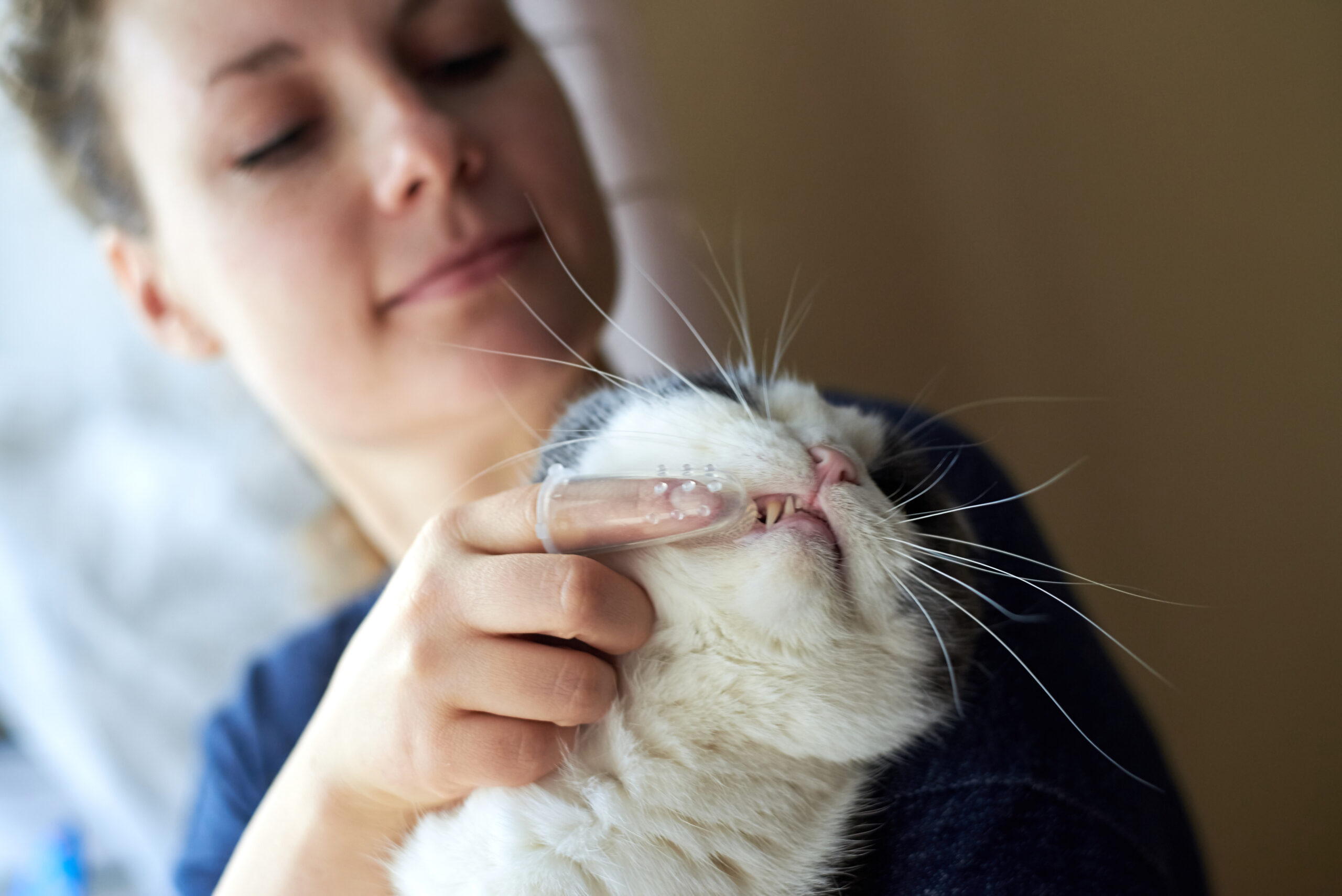
February is a time often associated with the emotion of love, but did you know it also happens to be National Heart and Dental Health month? What better time to share an article to help support families who love a senior or ill pet and what to monitor for with regards to their dental and cardiac health!
Dental Disease in Senior Pets
Many pets nearing end of life have dental disease. Often times this is due to the fact that their primary vet has determined that it may be too risky to administer the anesthesia for cleaning or extractions. For this reason, it’s so important to make sure your pet is receiving at least yearly health checkups at their primary veterinarian, so that they can receive dental care while they are still healthy enough to undergo anesthesia.
If your pet has dental disease that cannot be safely addressed with a routine dental, ask your vet for their recommendation to keep them comfortable. If your vet believes your pet’s dental disease may be causing them pain, they may prescribe a pain medication. They may also recommend switching your pet to a soft food or make other recommendations to ensure they can eat comfortably.
Dental disease, while not immediately life-threatening by itself, can constitute a very serious quality of life concern if it is causing pain or has an odor that is impacting your pet. Make sure your pet is receiving regular veterinary care and monitor them for changes in appetite, chewing patterns and any change in breath odor.

Heart Disease in Senior Pets
Many cats and dogs will develop heart disease at some point in their life. The severity of their disease can vary greatly and may or may not lead to heart failure. Regular veterinary checkups are the best way to catch heart disease early. Whether or not your pet has been diagnosed with heart disease, it’s always important to monitor your pet for changes in behavior and appearance. Keep in mind that heart disease doesn’t always “show up” in the early stages, so it’s always best to maintain at least yearly checkups. Common signs of heart disease or heart failure include tiring easily during exercise, panting when it’s not hot, open mouth breathing in cats, coughing/wheezing, pale or purple gums.
If your pet has already been diagnosed with heart disease or heart failure and is taking
medications, be sure to monitor them closely and stay in close contact with their primary veterinarian for recommendations on adjusting their medications if needed. If further medication is unlikely to remedy their disease and your pet is experiencing respiratory distress, inappetence or restlessness, then it may be time to schedule their end-of-life appointment.

Caring Pathways is always a phone call away if you need assistance assessing your pet’s quality of life or want to schedule an in-home appointment for their peaceful transition.
Written by: Dr. Mavi Graves, Caring Pathways Veterinarian
Dr. Mavi moved back to CO to attend vet school at CSU. While at CSU, she served as a manager of the student volunteer pet hospice program and that’s when she discovered end-of-life care as her veterinary calling. Dr. Mavi feels that the end-of-life journey is an incredibly sacred and meaningful time to serve pet families and she feels strongly about the importance of letting pets pass away at home. It is an honor to facilitate gentle and peaceful euthanasia experiences and to that end, Dr. Mavi has earned her Fear-Free Certification. She is also working towards acupuncture certification and strives for excellence and personal betterment in supporting pet owners through what may be one of the most difficult days of their lives.

